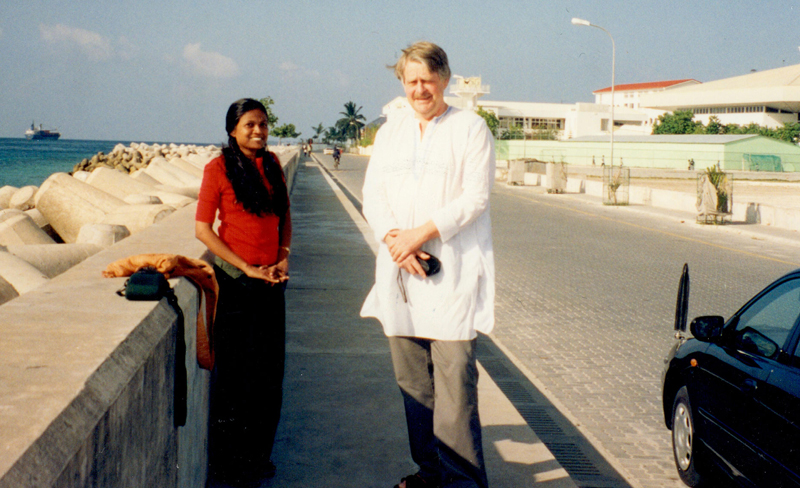SWEDISH SOUTH ASIAN STUDIES NETWORK
February 2002 meetings in the Maldives:
Meeting with Dr. Hassan Hameed, Rector of Maldives College of Higher Education, 26 February, 2002.
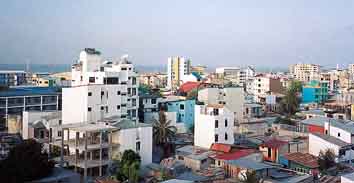 The College for Higher Education is situated in the heart of Malé, the capital of the Maldives. It is headed by Dr. Hassan Hameed, PhD in Physics and teaching Critical Thinking in Physics.
The College for Higher Education is situated in the heart of Malé, the capital of the Maldives. It is headed by Dr. Hassan Hameed, PhD in Physics and teaching Critical Thinking in Physics.
The college, which will be be transformed into a university proper before the year 2005, was started in 1998 and has right now eight faculties, some of which offer three years Bachelor programmes. The faculties are:
- Hotel and catering services
- Health sciences
- Management and administration
- Shareeah and Law
- Teacher education
- Technical education
- Maritime training centre
- Tertiary institute of open learning
Some of these faculties were initially started as institutes, which is the case for Health sciences and Teacher training.
At present there are about 1 500 students in three years programmes, and another 2 500 students come for shorter courses, especially in Maritime studies.
The college follows the London University system (where marks at 50 % may correspond to say 80 % in the Sri Lankan university system). Plans are now under way to convert the college into a university by the year 2005. But a major problem in fulfilling this is an acute shortage of trained teachers/researchers. Only the Principal has a PhD (and totally there could be as few as 12 Maldivian PhDs working in the country at present).
Because of this lack of postgraduates, much of the teaching in the college is arranged through costly franchise agreements with British, Australian and Canadian universities. There exists, for example, a Bachelor of Business programme in collaboration with the University of Middlesex, England, where all materials are imported, including the curriculum, scheme of lectures, and lecturers. The students are even registered with the Middlesex university and spend about two months there to get the degree.
Traditionally Maldivian students have always gone abroad to complete their higher studies. Previously it used to be to Sri Lanka, Pakistan, and other nearby places. But today many students prefer to go to England, the U.S., Canada, and Malaysia, even though this is a much more costly option. One reason for this is the fact that the new Maldives Accreditation Board two years ago set up new higher standards criteria for accepting a degree to be valid in the Maldives. Many colleges and universities in the neighbouring countries such as India and Pakistan do not provide exams that are acceptable in the Maldives.
Besides this studying in Sri Lanka has become increasingly difficult since few Maldivian students can compete with the great number of Lankan students when seeking admission. However, many students still go to Egypt, where the famous old Al Azhar University in Cairo gives scholarships to Maldivian students. Since they are often going on government scholarships there is a tendency to influence them to go for higher studies in Egypt.
According to government statistics, there are at present 852 Maldivian students abroad on government scholarships. In 2001 the government sent 408 students abroad, out of whom 108 were sent for graduate and post-graduate courses.
Dr. Hameed also informed us that there are two separate Research Centres in the Maldives. They are:
•The Environment Research Centre, attached to the Ministry of Home Affairs, Housing & Environment
•The Marine Research Centre, attached to the Ministry of Fisheries, Agriculture and Marine Resources
Besides these, there is also a National Centre for Linguistic and Historical Research, headed by Mr. Abbas Ibrahim, Chairman.
• More information on higher education in the Maldives was found in the Country Profile: Maldives, written by Dr. Mahamoodh Shougee (whom we also met, see below), for the sixth session of Unesco´s Asia-Pacific Centre of Educational Innovation for Development in 2001.
• Information on the educational system is also given by the United Nations, through the United Nations Development Programme in the Maldives.
Meeting with two researchers at the Environment Research Centre, on 26 February 2002:
• Mr. Ahmed Saleem, Assistant Environment Analysis (Biodiversity), BA from the University of the South Pacific at Fiji, and
• Mr. Amjad Abdullah, coastal engineer, MA in civil engineering from Brighton in England.
Unfortunately we could not meet the director of the research centre, as he was away for a conference on global warming in Tanzania. The director is currently the only PhD in the centre. The total staff is 30, but only 10 of these are doing research. They mostly work on policy related issues including taking measurements of temperature (last 30 years) and sea-level data (last 10 years).
The centre has small funds and not much equipment for doing research. They have some co-operation with the University of Auckland, New Zealand, and the University of New South Wales in Australia, with funds available from New Zealand. Recently a research team from Japan was also here to do some research on corals. Coral research is also performed at the Marine Research Centre, with which they have frequent contacts and interaction.
The flora and fauna of the Maldives is not fully mapped. A unique project is implemented by the Marine Research Centre, in collaboration with the United Nations Development Programme, UNDP. This is the so called Pearl Culture Project, funded by the Japanese Human Resource Development Fund, and aims at increasing the knowledge of Maldivian pearl oysters and pearl culture in ancient times. More information on the UNDP projects in the Maldives .
The problem, though, is that there is no taxonomist available in the Maldives, and it is very costly to hire one from outside.
At the research centre there is a clear interest in establishing research co-operation with other countries, e.g. Sweden, and also to find out possibilities to go for higher studies for Masters or PhD degrees.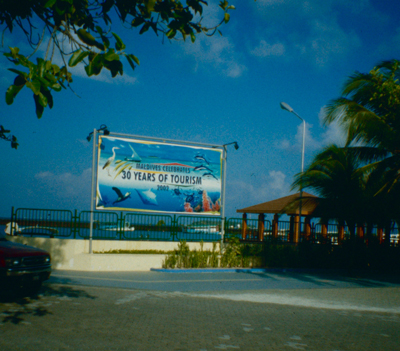
We also talked about the economy of the country with its 270 000 population (half of which is below 15 years), and nearly 400 000 tourists a year. Tourism today generates about 50 % of the incomes, and even more when it comes to foreign exchange.
Tuna fishing is the other main source of income, maintained in a sustainable way with line and hook fishing, and protection of the waters from foreign fleets. There is an industry for making the Tuna meat into canned food.
Regarding tourism, there is a plan, and strong laws regulating it. About 80 resorts have been built on uninhabited islands and the impact on the environment has been moderate and not very damaging. Before each project is sanctioned an Environmental Impact Assessment (EIA) is carried out. And there is also research done on the carrying capacity of tourism. There are rules laid down for each resort. Each resort is required to desalinise sea water for drinking water purpose, and it is not allowed to touch the ground water on the island. It helps to preserve the ground water. In Malé the ground water is already depleted and the capital city island is completely dependent on desalinised water.
Meeting with Mahamood Shougee, PhD, Chief Educational Supervisor, Ministry of Education, 26 February 2002.
Mr Shougee is a PhD in Education from Toronto University, and has spent 12 years in Canada, part of the time as Director of the International Office at that university. He also has experience from the Erasmus programme.
He returned to the Maldives because he had gone abroad on a government scholarship and therefore felt he must serve his country in exchange for that. (Normally Maldivian students who are sent to foreign countries to do higher studies are obliged to work for at least five years for the Maldivian government after returning).
Shougee suggested a number of topics for studies, which could be of interest for International research co-operation. They include:
• Tourism and its impact, etc. (As regards tourism, the special feature is the development of single resorts on uninhabited islands, which are self-contained. In the 1970s there was an assessment by the UN tourist organisation who did not think this could become a success in the Maldives. But the implementation has succeeded and the programme has been successful in protecting the environment.)
• Marine research
• Education – how a country with a scattered population nonetheless has succeeded in getting a more or less universal level of literacy. How was this possible?
• The formative stage now in developing higher education, planning, etc, when there is a constraint in trained personnel
One possibility for co-operation could also be to set up an advanced or diploma programme in tourism studies.
If Swedish students want to do research in the Maldives, the Ministry of Education is most willing to help with affiliation, either at the Ministry itself or e g the College for Higher Education.
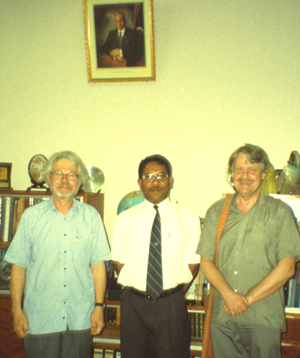 Meeting with Dr. Mohamed Latheef, Minister of Education, and Dr. Mahamood Shougee, 26 February 2002
Meeting with Dr. Mohamed Latheef, Minister of Education, and Dr. Mahamood Shougee, 26 February 2002
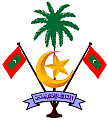 Web page: http://www.thauleem.net/
Web page: http://www.thauleem.net/
The Minister welcomed co-operation with Swedish universities in the fields of research and education. We had a very stimulating discussion about Maldivian history, its isolation during the time of the Brittish protectorate (1887-1965), and ancient contacts with many different cultures, etc. We also discussed more about tourism and its impact. Both Latheef and Shougee thought that TV has a more negative impact on the Maldivian people than what tourism has had.
The study topic they gave most priority to was Tourism and Hospitality, and Tourism and Environment.
They both wondered how such a co-operation could be implemented. Shougee also asked if there was any education/research in Sweden of relevance to the Maldivian situation.
Meeting with Mr. Abdullah Kamaludeen, Minister, and Ms. Rasheeda Ali, Director General of the Ministry of Human Resources, Employment and Labour
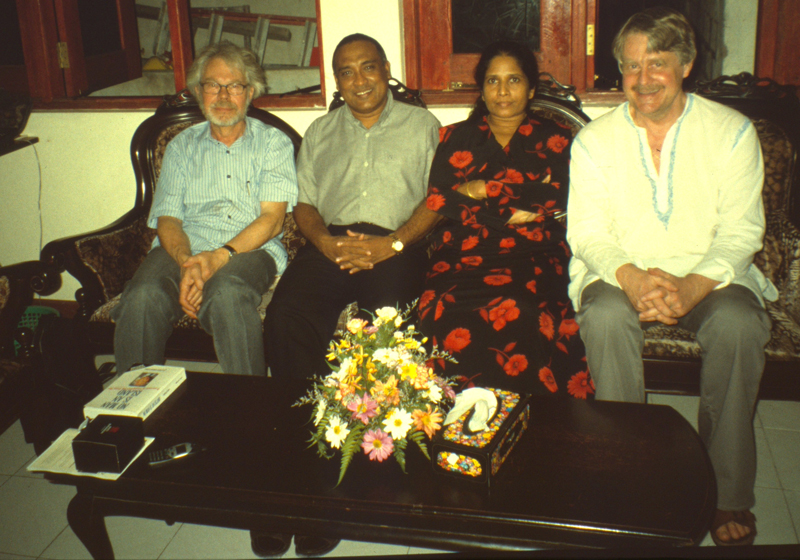 After visiting the Ministry of Education in the centrally located Ghazee Building in Malé we proceeded to the Ministry of Human Resources, Employment and Labour in the same building. It was thanks to the kind services of the minister here, Mr Abdullah Kamaludeen, that we had come into contact with all the relevant persons during our stay in the Maldives.
After visiting the Ministry of Education in the centrally located Ghazee Building in Malé we proceeded to the Ministry of Human Resources, Employment and Labour in the same building. It was thanks to the kind services of the minister here, Mr Abdullah Kamaludeen, that we had come into contact with all the relevant persons during our stay in the Maldives.
We gave a brief presentation of SASNET, and explained our aims. We discussed the possibility that we might be able to help them in finding supervisors and possibly departments in Sweden (or other Nordic countries) to which candidates for UNESCO scholarships – which can be used for studies anywhere in the world – could turn.
In a separate discussion with Mr Kamaludeen he presented a vision for his country´s economic development. He suggested that the Maldives need to diversify its economy into new avenues. In order to improve the economic situation on most of the remote islands, there is a need to develop local industries based on available skills and crafts. He also suggesed that this development should be organised in a co-operative form.
Another major effort could be, he suggested, to develop the Maldives into an International trade centre, both for cargo and for retail goods. The latter means developing a free trade zone with refined shopping facilities in order to attract middle-class tourists from India and Sri Lanka. We agreed that such a project would need heavy investments in infrastructures.
Finally, he also thought that it would now be possible to develop integrated tourism in various parts of the Maldives with smaller guesthouses and other facilities, also making it cheaper for the tourists. The present prices for tourists may be on the high side.
Summary of the meetings:
There is clearly more going on in the field of education and research than we had originally assumed based on our scanty knowledge of the Maldives. A college of higher education and two research centres (for Environment and Marine research) have been started, and the former is going to be converted into a university proper within few years. Both the ministers of education, and human resources development, as well as their officers, have a strong interest in research co-operation regarding for example:
• Tourism research
• Environmental research, including marine research
• Education research
There is also a strong interest in finding masters courses and PhD training facilities in these fields in Sweden, and possibly also in developing bachelor and masters courses in the Maldives with Swedish co-operation.
So the task for SASNET now is to find potential partners in this. Kalmar University College, and the UN Water Institute in Kalmar are two possibilities. The Dept of Marine Ecology in Göteborg is another. We have to localise also other institutes and teachers/researchers. Perhaps the best way to stimulate interest and co-operation is to organise a seminar on the situation in the Maldives during the fall.
|
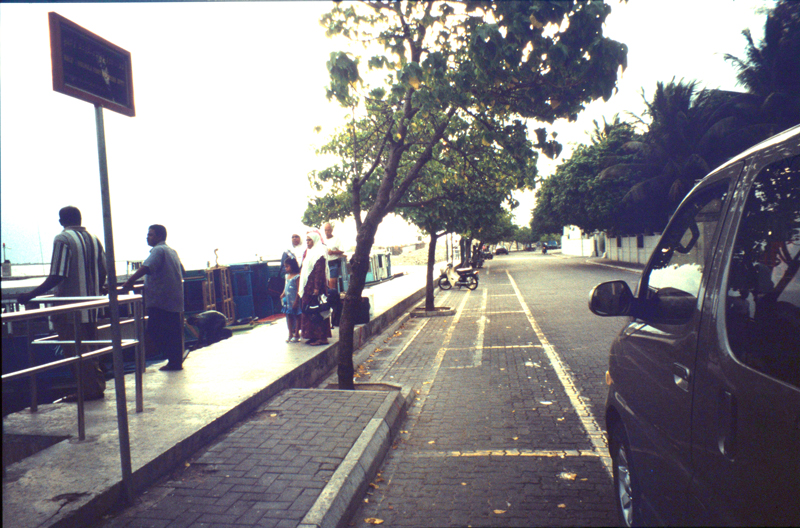 |
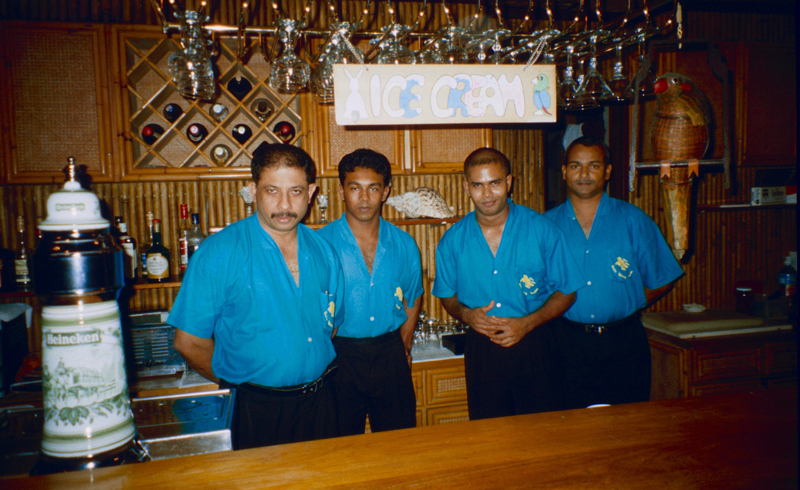 |
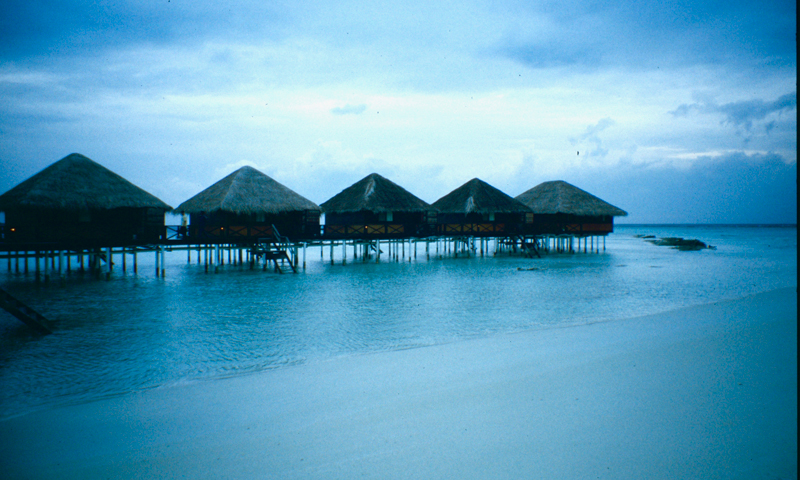 |
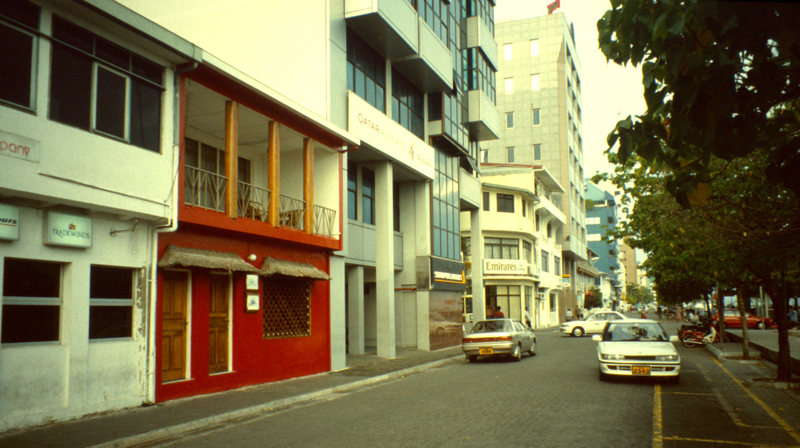 |
SASNET - Swedish South Asian Studies Network/Lund University
Address: Scheelevägen 15 D, SE-223 70 Lund, Sweden
Phone: +46 46 222 73 40
Webmaster: Lars Eklund
Last updated 2019-06-01
